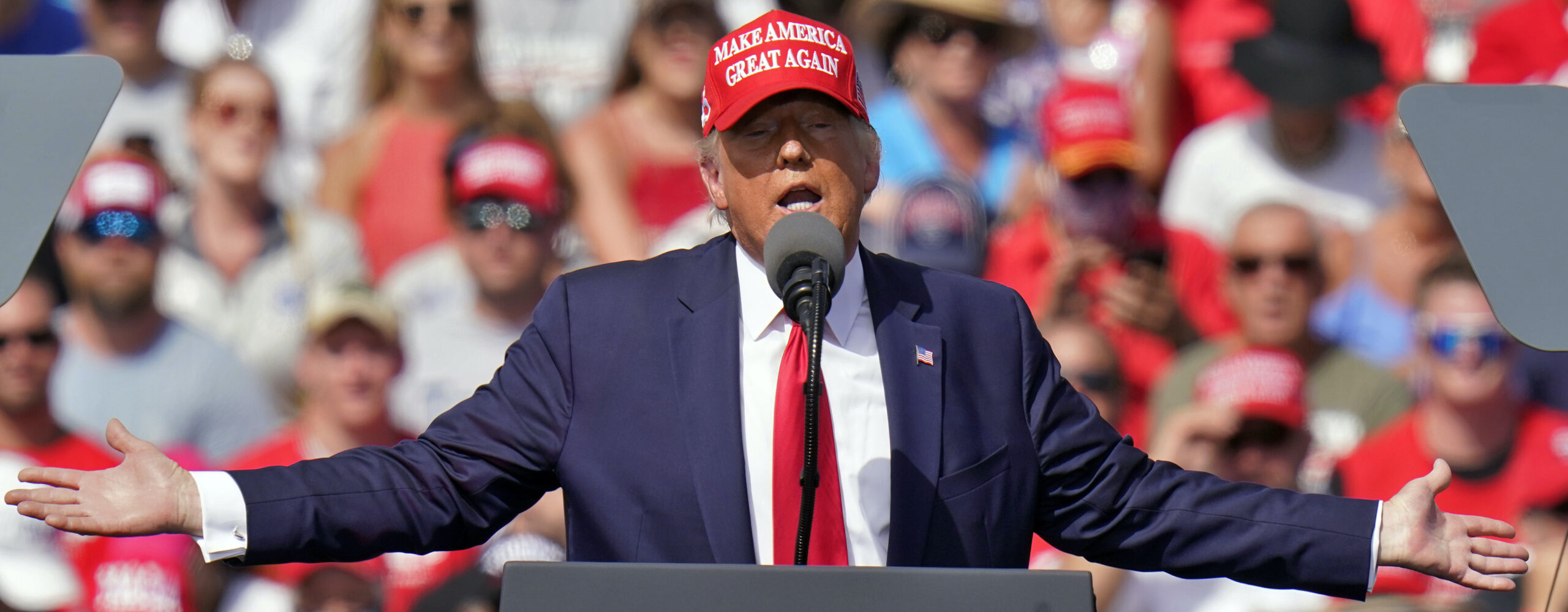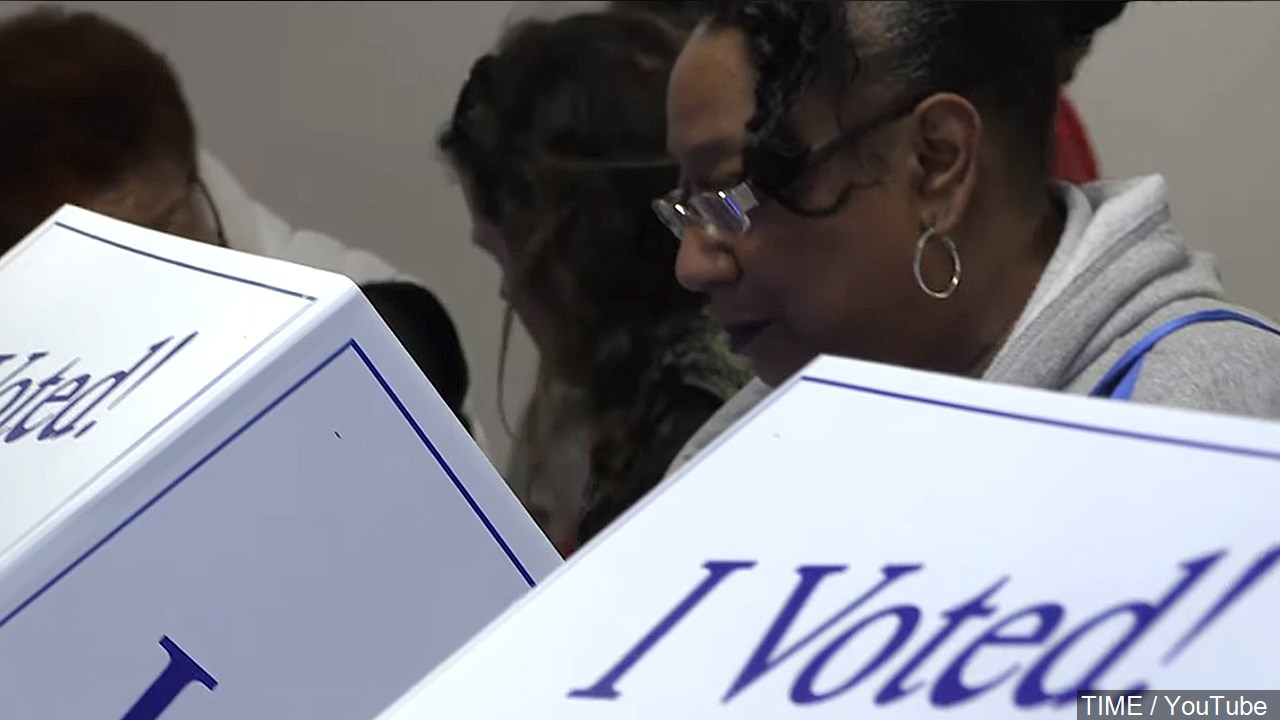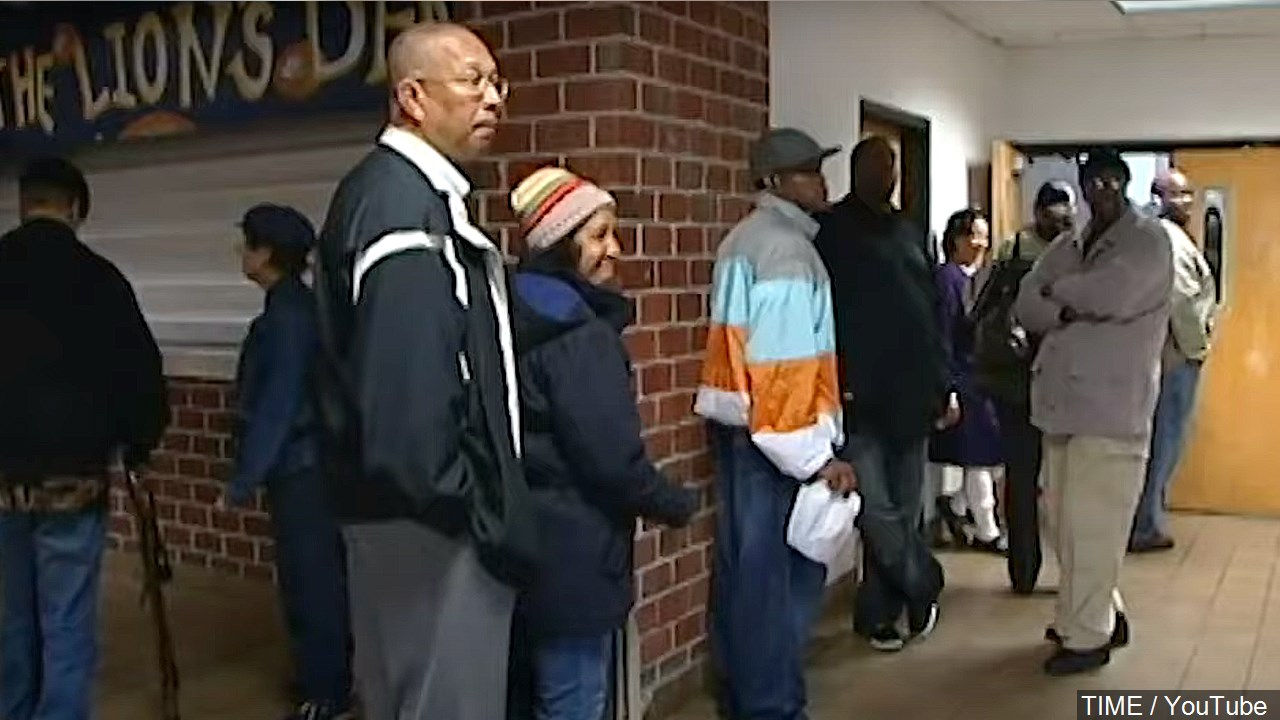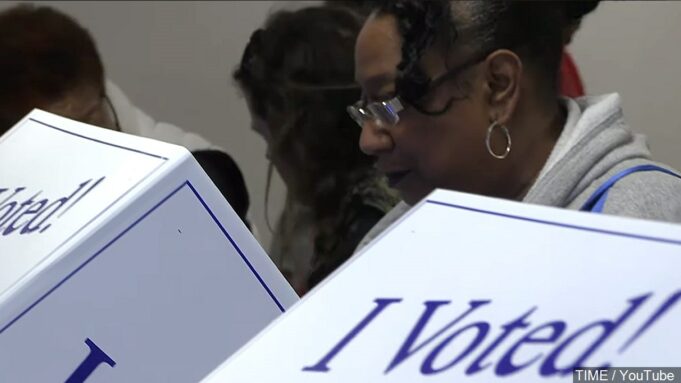At the end of this long, seemingly interminable general election season, American voters will have made their choice for who will lead the country for the next four years.

Photo: Facebook
On Jan. 20, 2021, either former Vice President Joe Biden and running mate Sen. Kamala Harris or President Donald Trump and Vice President Mike Pence will have prevailed. Regardless of who wins, African Americans and their allies have been looking beyond Nov. 3 to ponder what needs to be done to create the type of society that is more fair, just and equitable in the midst of converging crises.
Michele L. Watley, a political consultant, activist and a Kansas City native, told The Final Call that as she assesses the political landscape, she feels that Mr. Trump will win.
“I’m hoping I’m wrong but I think he’s going to win. I think Trump has done a good job with keeping his supporters engaged and mobilized,” she said. “Early on, he had phenomenal fundraising numbers. He’s not stopped campaigning.”
“We had two debates before a Black person served as moderator. That’s when race and racism were put on the table. With regards to the Democrats, their most loyal voting bloc had to wait. One of the top issues in this country is race and racism. I think Democrats are missing the mark. They have spent a great deal of time trying to attract White working class. Is it worth extending resources for people who won’t vote for you?”
Ms. Watley said Black people are being very strategic in their presidential, senatorial and other choices. The end goal Blacks seek to reach is leavened by the necessity to use the tools of this deeply flawed political system to minimize the danger they face.
Ms. Watley said in an earlier interview that she thought the fear tactics employed by Republicans would make Democrats stay home but she said her fears were contradicted by record-breaking numbers of people who have cast ballots in early voting. On Oct. 30, almost 85 million people had voted in Florida, Georgia, Texas, Hawaii and elsewhere. In Arizona, for example, there was a 71 percent increase in early voting compared to 2016 with 2.2 million residents. Wisconsin saw 2.1 million residents vote. In 2016, the total vote tally was 2.9 million people. Texas has recorded more than 9 million early votes, smashing 2016 turnout. Meanwhile, in battleground states, Millennials have come out in large numbers too and women and seniors have voted in notable numbers.
Once again, focus on Black voter turnout was front in center particularly in key battleground states, noted analysts. Four years ago, in the 2016 race, Black voters came out in fewer numbers. According to the Pew Research Center, Non-Hispanic White Americans make up the largest share of registered voters in the U.S., at 69 percent of the total as of 2019. “Latino and Black registered voters each account for 11 percent of the total, while those from other racial or ethnic backgrounds account for the remainder (8 percent),” the center noted.
There were signs Black voter turnout was increasing as early voting had broken records in several states.
“Tom Bonier, chief executive of TargetSmart, a Democratic data firm, said his statistical model shows that in six battleground states—Arizona, Florida, Georgia, North Carolina, Nevada and Texas—the number of black voters over the age of 65 who have voted early, either in-person or by mail, has already exceeded their overall turnout numbers from four years ago,” Lauren Fedor wrote in the article, “African-American turnout is key to US election result,” on ft.com.
However, according to Bloomberg, leading up to Nov. 3 senior officials on Mr. Biden’s campaign were increasingly worried about insufficient Black and Latino voter turnout in key states like Florida and Pennsylvania. Despite record turnouts, in Florida half of Black and Latino registered voters had not yet voted but more than half of White voters had cast ballots, according to data from Catalist, a Democratic data firm, reported Bloomberg.com.

Photo: UDC.EDU
Political Science professor Dr. Monique Gamble said even at this late date, she has no idea what the election portends.
“Everything is very up and down,” she said with a sigh. “It feels like our institutions, as powerful as they are, are controlled by trash people. Having them be responsible for checks and balances has failed. I’m not deeply optimistic. I was an institutionalist but ultimately, these institutions are only as good as those who oversee and monitor them. As we look at Donald Trump and those who’ve enabled him, every level of our institutions is broken.
“Any number of terrible things are possible. If Trump refuses to leave, it would trigger a constitutional crisis. We have watched him flout constitutional norms and he has had no accountability. Voting for Joe Biden is not a vote of confidence but a strategic choice. Biden is accepted by White people but he’s not as progressive as we need. The centrist approach is not enough.”
Dr. Gamble said America has ignored race, structural and institutional racism and the deleterious effects of these practices on Black and White Americans. One way to begin to deal honestly with this, she believes, is for this country to discuss and flesh out reparations to atone for four centuries of slavery in this country.
“I think it’s positive that this conversation has been reborn,” said Dr. Gamble, an associate professor at the University of the District of Columbia. “I don’t know that the country understands what slavery did, how slavery evolved and the pernicious aspects such as convict leasing, maternal mortality and Jim Crow. The accounting is full on … .”
The Alabama native expressed fear and concern about the emboldening of White nationalists and extremists by Mr. Trump’s racist rhetoric, and the possibility of violence and intimidation at the polls by these people.
She said beginning now, Blacks and their allies have to work to dismantle the structural barriers that exist to blunt any efforts of reform in electoral politics. There are several things to be fixed, corrected or removed, such as gerrymandering, voter suppression and manipulation and political methods of ensuring that a minority continues to rule over a majority, she said.
Political commentators, pundits and everyday Americans have characterized the 2020 presidential elections as the most consequential of our lifetimes. For the past four years, critics note, Mr. Trump has attacked, largely eroded and seriously damaged institutions, ignored long-established political norms, and engaged in criminal behavior that led to his being impeached in January. And he has also spent his entire presidency attacking, maligning and smearing Blacks, Latinos, immigrants, Muslims and non-Whites generally, and stoked racist and White nationalist fears which have divided the country.
Critics say Mr. Trump has embarked on a sustained assault against the political system. Noam Chomsky, a noted philosopher, scientist, historian and social critic calls Mr. Trump “the worst criminal in human history.”

He told the New Yorker that Mr. Trump’s main policy is enriching the wealthy by scamming everybody else.
“He has enriched the ultra-rich and the corporate sector … his legislative achievement is the tax scam (which is) a giveaway to the very rich,” he said. “(He’s) harming the working class and the poor and everyone else. That’s extreme. He’s a very loyal servant of private power, private wealth and the corporate sector—which is why they let him get away with the kinds of antics you see.”
Of equal concern, critics say, Mr. Trump has overseen and botched the federal response to the Covid-19 global pandemic which has brought the United States to its knees. So far, the pandemic has killed about 230,000 Americans, sickened 9 million more and the disease has been allowed to run unfettered by the Trump administration which is yet to launch a coordinated national response. Covid-19 forced the shutdown of about 80 percent of the country early in the epidemic, triggering an economic meltdown and record unemployment that dwarfs the Great Recession.
Given these gargantuan challenges, Dr. Wilmer Leon, III said, it really doesn’t matter who wins in November.
“I don’t think that it’s really going to matter what happens on Nov. 3,” he told The Final Call. “I think the virus is at such a point that in the next six months the numbers that we’re seeing over the past two weeks indicate that the s**t’s about to hit the fan. I’ve been talking to three public health physicians who say the projection of deaths could be 410,000 by January. This is the one data point that determines where everything goes.”

Because coronavirus is running rampant, Dr. Leon said, if former Vice President Joe Biden and Sen. Kamala Harris win in November, whatever measures they implement to fight Covid-19, “won’t be able to have an impact until April or May 2021.”
The new president and his vice president will be contending with about 140 million people who go to bed hungry every night; the presence of long food lines in cities and towns across the country; men and women seeking housing and food assistance; unemployed Americans seeking job support; and help for small businesses which are disappearing in the tidal wave of Covid-19, said Dr. Leon, a radio talk show host, author and political analyst.
But he anticipates that a Biden-Harris administration—if Democrats take the U.S. Senate and hold onto the House of Representatives—would push through a relief bill and a stimulus package to help the millions of Americans who’re struggling to buy food and pay rent, the tens of millions who are unemployed and the estimated eight million Americans who have fallen further into poverty because Republicans refuse to agree to a relief fund package.
Kymone Freeman, an award-winning playwright, poet and co-founder of We ACT radio, said he is thoroughly disgusted with both political parties.
“We need to recognize that this is not a democracy. Waiting for hours in line in order to vote is voter suppression,” said the Washington, D.C., resident. “I think we’re going to see more than Bush Vs. Gore this election and regardless of the election outcome, Trump is not leaving the White House.”
Mr. Freeman said he has no time for Republicans or Democrats, which is why he’s voting for the Green Party candidate.
“Coronavirus has put capitalism on trial. It has shown the cracks, fissures and problems of this system,” he said. “They’d preserve the economy before they preserve life. I’m not voting for Biden or Trump. None has helped Black people. They don’t support Medicare for All, a universal basic income—which Dr. Martin Luther King, Jr., supported–the Green New Deal, rebuilding the country’s infrastructure, providing well-paying jobs or taking care of the environment.”
Mr. Freeman, Ms. Watley and Profs. Leon and Gamble agree that the American political system is broken, and coupled with racism and other “isms,” has created unsafe conditions for Black people economically, socially and politically. What has to come after Nov. 3 must be driven by the question of what does real, substantive change look like for Black Americans?
James Counts said regardless of who occupies the White House on Jan. 20, progressives, socialists and other allies seeking to overturn the status quo so that people may live, must continue to organize, educate the public and create the society they imagine.
“We have an extremist, authoritarian, racist, misogynistic, imperialist, interventionist (president) who came in with the stated goal of control and domination,” he explained. “This has put extreme pressure on women, children and workers. It’s important to remove him (Trump) to struggle against Covid-19. (The pandemic has) revealed the paralysis of the two-party system, and the effect of the neo-liberal market to provide health, resources and the jobs people need.”

Mr. Counts, a social justice organizer and a retired executive with the Smithsonian Institution, said it’s important that Americans check their ballots for Joe Biden.
“I’m not endorsing the Biden-Harris ticket because they have the same retrograde, backward policies as Republicans. They don’t support defunding police; they support interventionist policies against Nicolas Maduro and they also support the embargo against Cuba,” he said.
Mr. Counts said he’s aware of arguments put forward that a President Biden would be easier to push further left, “but it’s a hypothetical whether we can move them. The question is, can democratic-socialists, socialists or progressives improve the width and breadth of the movement to push them to advance. This is … a false argument. The issues is can we push further.”
He said it’s necessary to determine what are the correlation of forces in real life and to take a critical look on what these forces are doing to educate people.
Mr. Counts point to Black Lives Matter activists as having a broad U.S.-domestic policy agenda and international support of Palestinians and other oppressed people around the world.
“They also moved the public discourse to look at difficult social and racial issues,” he said. “We are now looking at the economic maturation of capitalism. We must organize and people must stand against the status quo. They must be forced to understand that people will no longer recognize the status quo.”
Ms. Watley said the energy used to resist Mr. Trump cannot fade if Mr. Biden and Ms. Harris take office.
“What happens if Trump loses? What are we going to do? Are we going to say we beat Trump, beat racism?” she asked. “Are we not going to hold Harris and Biden to account, take them to task with the same fervor we have with Trump? Are we going to be the angry Black women holding candidate’s feet to the fire?”
At the risk of sounding pessimistic, Ms. Watley said, her inclination is to say America can’t survive because of the majority’s unwillingness or inability to deal with America’s original sin—slavery. She also said Blacks must look at and acknowledge the vitriol and racism that permeates the country.
“We’re in a season of winter. We need to create better infrastructures, help people build capacity and build the ranks so people can lead across issue spectrums. We as a country have the greatest access to education, money and resources but not sure if that’s enough,” said Ms. Watley, founder of Shirley’s Kitchen Cabinet, a nonpartisan organization dedicated to amplifying the voices and power of Black women through education and advocacy. “Another four years of Trump will provide the opportunity to reach the tipping point. We didn’t see the undercurrent because we were blinded by having a Black man in office as president.”
She said a wide range of issues will affect Blacks for the next several years.
“You, your family and others will be affected. But this is an opportunity to learn, grow, develop,” she said. “Figure out systems for combating racism and the challenges we face. As far as alliances and the collective are concerned, people can decline or accept. It’s increasingly important that we’re moving in the same direction but racism impacts us despite money, education and other factors. I believe in collectivism. There’s power in numbers and working for the common good.”













